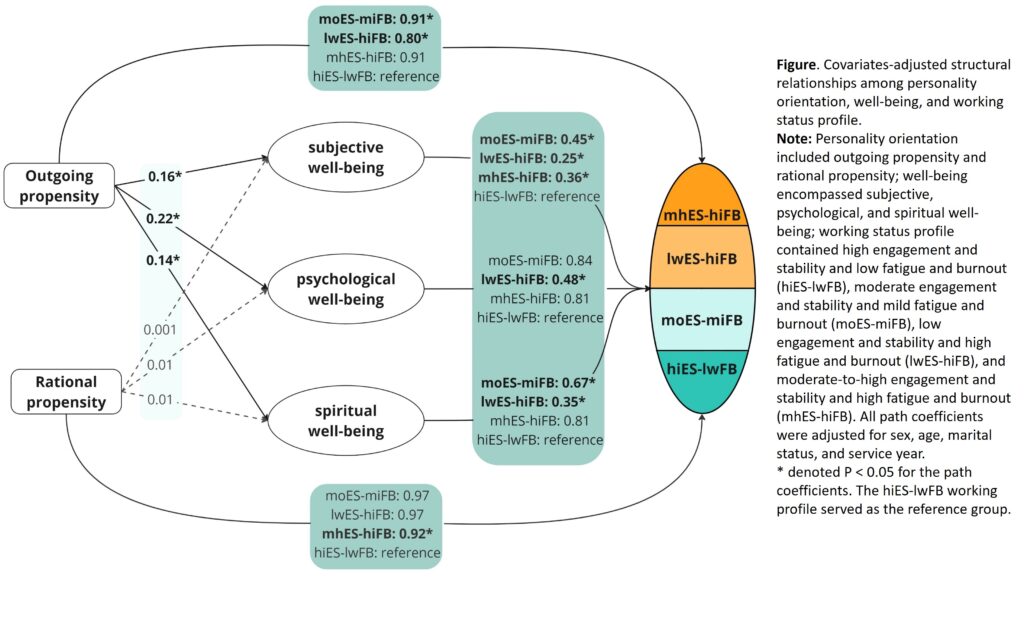Occupational
Work-related psychological health: Latent profiles and mediating effects of well-being among Chinese priests Yu-Ting Chin* Yu-Ting Chin Wen-Cheng Li I-Ling Ling Chien-Hung Lee
Background: The new-style work situation model promotes a multidimensional perspective on work-related psychological health and emphasizes the discussion of the etiology of personality traits and types of well-being in relation to mental health issues in the workplace. In this study, we developed a latent typology of working status profiles for Chinese priests and assessed the potential mediating effects of well-being types on the associations between personality orientations and working status profiles. Methods: In 2023, a survey was conducted with 703 priests in Taiwan. Chinese versions of the clergy psychological type scale, well-being scale, and work-related psychological health scale were used to measure study variables. Latent profile analysis was conducted to explore working status profiles, while generalized structural equation modeling was used to assess structural associations, adjusting for covariates. Results: The identified working status profiles, which demonstrated a good model fit, were as follows: Profile 1 (hiES-lwFB, 57.2%): high engagement/stability and low fatigue/burnout; Profile 2 (moES-miFB, 28.2%): moderate engagement/stability and mild fatigue/burnout; Profile 3 (lwES-hiFB, 6.8%): low engagement/stability and high fatigue/burnout; and Profile 4 (mhES-hiFB, 7.8%): moderate-to-high engagement/stability and high fatigue/burnout. Using the hiES-lwFB group as a reference, subjective, psychological, and spiritual well-being mediated 16.5%, 11.7%, and 13.2% of the relationship between outgoing propensity and the lwES-hiFB group, respectively. Additionally, priests with high rational propensity scores had a lower likelihood of being in the mhES-hiFB group. Conclusion: This study identified four mental status profiles in the workplace for Chinese priests. The data demonstrated the mediated effects of three types of well-being on the association between outgoing propensity and the low engagement/stability and high fatigue/burnout working profile.

